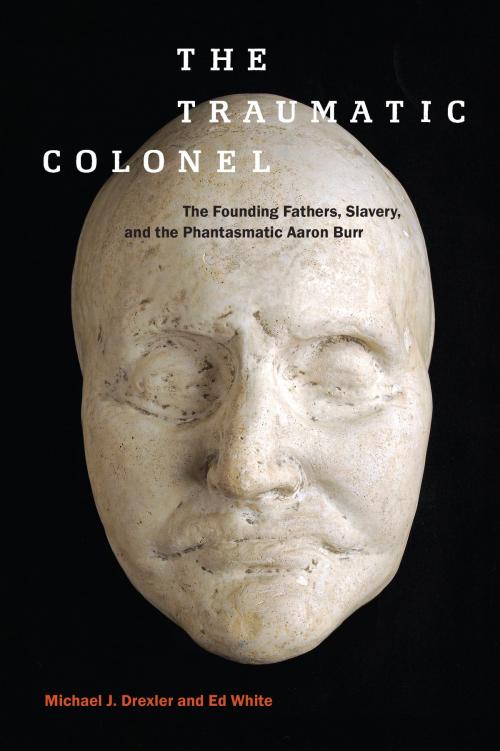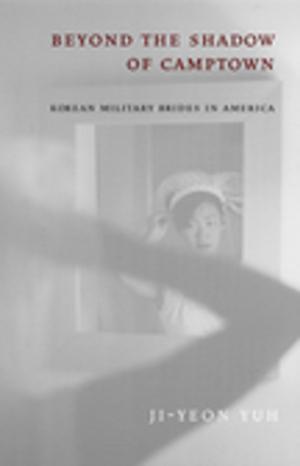The Traumatic Colonel
The Founding Fathers, Slavery, and the Phantasmatic Aaron Burr
Nonfiction, History, Revolutionary, Americas, United States, Revolutionary Period (1775-1800)| Author: | Michael J. Drexler, Ed White | ISBN: | 9781479875795 |
| Publisher: | NYU Press | Publication: | July 11, 2014 |
| Imprint: | NYU Press | Language: | English |
| Author: | Michael J. Drexler, Ed White |
| ISBN: | 9781479875795 |
| Publisher: | NYU Press |
| Publication: | July 11, 2014 |
| Imprint: | NYU Press |
| Language: | English |
In American political fantasy, the Founding Fathers loom large, at once historical and mythical figures. In The Traumatic Colonel, Michael J. Drexler and Ed White examine the Founders as imaginative fictions, characters in the specifically literary sense, whose significance emerged from narrative elements clustered around them. From the revolutionary era through the 1790s, the Founders took shape as a significant cultural system for thinking about politics, race, and sexuality. Yet after 1800, amid the pressures of the Louisiana Purchase and the Haitian Revolution, this system could no longer accommodate the deep anxieties about the United States as a slave nation.
Drexler and White assert that the most emblematic of the political tensions of the time is the figure of Aaron Burr, whose rise and fall were detailed in the literature of his time: his electoral tie with Thomas Jefferson in 1800, the accusations of seduction, the notorious duel with Alexander Hamilton, his machinations as the schemer of a breakaway empire, and his spectacular treason trial. The authors venture a psychoanalytically-informed exploration of post-revolutionary America to suggest that the figure of “Burr” was fundamentally a displaced fantasy for addressing the Haitian Revolution. Drexler and White expose how the historical and literary fictions of the nation’s founding served to repress the larger issue of the slave system and uncover the Burr myth as the crux of that repression. Exploring early American novels, such as the works of Charles Brockden Brown and Tabitha Gilman Tenney, as well as the pamphlets, polemics, tracts, and biographies of the early republican period, the authors speculate that this flourishing of political writing illuminates the notorious gap in U.S. literary history between 1800 and 1820.
In American political fantasy, the Founding Fathers loom large, at once historical and mythical figures. In The Traumatic Colonel, Michael J. Drexler and Ed White examine the Founders as imaginative fictions, characters in the specifically literary sense, whose significance emerged from narrative elements clustered around them. From the revolutionary era through the 1790s, the Founders took shape as a significant cultural system for thinking about politics, race, and sexuality. Yet after 1800, amid the pressures of the Louisiana Purchase and the Haitian Revolution, this system could no longer accommodate the deep anxieties about the United States as a slave nation.
Drexler and White assert that the most emblematic of the political tensions of the time is the figure of Aaron Burr, whose rise and fall were detailed in the literature of his time: his electoral tie with Thomas Jefferson in 1800, the accusations of seduction, the notorious duel with Alexander Hamilton, his machinations as the schemer of a breakaway empire, and his spectacular treason trial. The authors venture a psychoanalytically-informed exploration of post-revolutionary America to suggest that the figure of “Burr” was fundamentally a displaced fantasy for addressing the Haitian Revolution. Drexler and White expose how the historical and literary fictions of the nation’s founding served to repress the larger issue of the slave system and uncover the Burr myth as the crux of that repression. Exploring early American novels, such as the works of Charles Brockden Brown and Tabitha Gilman Tenney, as well as the pamphlets, polemics, tracts, and biographies of the early republican period, the authors speculate that this flourishing of political writing illuminates the notorious gap in U.S. literary history between 1800 and 1820.















